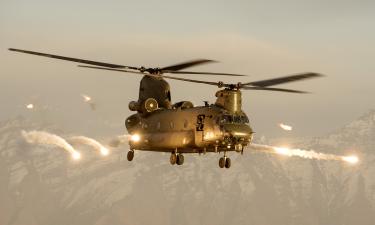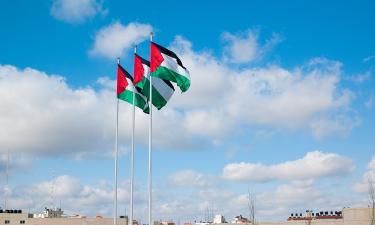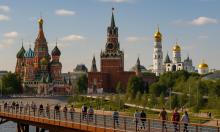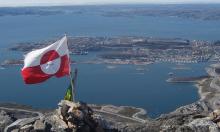Russia to revive army bases in three oceans
The Russian government intends to restore the military-technical support of their ships at the former military base in Cam Ranh (Vietnam), Lourdes (Cuba) and the Seychelles. So far, this is not about plans for a military presence, but rather the restoration of the crew resources. However, a solid contractual basis should be developed for these plans.
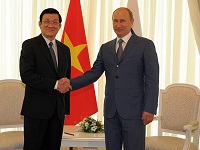
The intentions were announced on July 27 by the Russian Navy Commander Vice Admiral Viktor Chirkov. "At the international level, the creation of logistics points in Cuba, the Seychelles and Vietnam is being worked out," Chirkov was quoted by the media. The issue was specifically discussed at the meeting with the leaders of all countries. President of Vietnam Truong Tan Sang has recently held talks with Prime Minister Dmitri Medvedev in Moscow and President Putin in Sochi. Cuban leader Raul Castro met with Putin in Moscow earlier this month. A little earlier the President of the Republic of Seychelles, James Michel made an unequivocal statement.
"We will give Russia the benefits in Cam Ranh, including the development of military cooperation," the President of Vietnam told the media. Cuba that has an American military base in Guantanamo Bay and is protesting against the deployment of new U.S. bases in Colombia, of course, wants to acquire an ally in Russia to be able to contain the United States. Seychelles in the Indian Ocean has always been in the zone of Soviet influence. In 1981, the Soviet Navy helped the government to prevent the military coup and before the collapse of the USSR the Soviets had a constant presence in the area. In June of 2012, at the opening of an Orthodox church in the capital city of Victoria, James Michel spoke of Russia's role in combating piracy and supported the Russian idea to build a pier in the port of Victoria, designed for the reception of the Navy warships of Russian Federation.
Following the statement by Vice-Admiral, Russian Foreign Ministry and Defense Ministry made it clear that they were talking about rest and replenishment of the crews after the campaign in the area and not military bases. It is clear, however, that Russian warships could do both without special arrangements, given the good attitudes of the leaders of these countries toward Russia. It can be assumed that the Russian Admiral unwittingly gave away far-reaching plans of the Russian leadership. That would be great, because from the time of Peter the Great, Russia had a strong fleet and army. In addition, it is worth mentioning Putin's statement at the G20 meeting in June. After the meeting with U.S. President Barack Obama, Putin made a sudden harsh statement to the press.
"In 2001 I, as the President of the Russian Federation and the supreme commander, deemed it advantageous to withdraw the radio-electronic center Lourdes from Cuba. In exchange for this, George Bush, the then U.S. president, has assured me that this decision would become the final confirmation that the Cold War was over and both of our states, getting rid of the relics of the Cold War, will start building a new relationship based on cooperation and transparency. In particular, Bush has convinced me that the U.S. missile defense system will never be deployed in Eastern Europe.
The Russian Federation has fulfilled all terms of the agreement. And even more. I shut down not only the Cuban Lourdes but also Kamran in Vietnam. I shut them down because I gave my word of honor. I, like a man, has kept my word. What have the Americans done? The Americans are not responsible for their own words. It is no secret that in recent years, the U.S. created a buffer zone around Russia, involving in this process not only the countries of Central Europe, but also the Baltic states, Ukraine and the Caucasus. The only response to this could be an asymmetric expansion of the Russian military presence abroad, particularly in Cuba. In Cuba, there are convenient bays for our reconnaissance and warships, a network of the so-called "jump airfields." With the full consent of the Cuban leadership, on May 11 of this year, our country has not only resumed work in the electronic center of Lourdes, but also placed the latest mobile strategic nuclear missiles "Oak" on the island. They did not want to do it the amicable way, now let them deal with this," Putin said.
It is obvious that Russia will not stop simply at "resting" their sailors in the area. Now back to the statement of Chirkov. Americans have not officially resented it. For example, the Pentagon spokesman George Little said that Russia had the right to enter into military agreements and relationships with other countries, as does the United States, according to France Press Agency. The reason is simple: American analysts believe that Russia now cannot afford to create its own military bases.
The Americans talk about Russia's lack of influence, money and the actual fleet. Western media quoted an "independent expert on the defense" in Moscow Paul Fengelgauer. He said that Russia does not have the necessary naval resources to provide constant presence outside its territorial waters, as it has only 30 major warships that serve five fleets. Therefore, the possibility of placing an additional station does not mean the expansion of sea power in Russia. This is largely an objective assessment. But since the crisis in the West in 2008, Russia began to recover part of its navy. The loss was not that great - about a quarter of the Soviet reserve. Another thing is that we should talk about the modernization of the fleet. There is much to maintain. On Thursday, Chirkov said that this year Russia's naval forces can be replenished with another 10-15 warships, including destroyers and nuclear submarines.
As for the influence, judging by the words of the Russian President, Russia is also actively growing in this regard, although work in this direction has only begun. As we can see, Pacific, Atlantic and Indian Oceans are involved. This is due not only to geopolitical reasons, but the growing economic presence of Russia in the regions. For example, "Gazprom" is actively working on offshore Vietnam. In the Caribbean, it also participates in the construction of Meso-American pipeline and field development in Venezuela. An ammunition plant is under construction in Cuba.
However, one should start with a solid contractual basis. Take, for example, agreements on mutual defense that the U.S. has with the Philippines, Japan, Colombia, and Mexico. In the presence of such agreements military bases cannot be challenged as a military expansion. Russia has room to grow - of the 16 operating in the Soviet era military bases today there is only one left - Tartus in Syria, or two, if we consider the base in Sevastopol.
Lyuba Lulko
Pravda.Ru
Subscribe to Pravda.Ru Telegram channel, Facebook, RSS!
